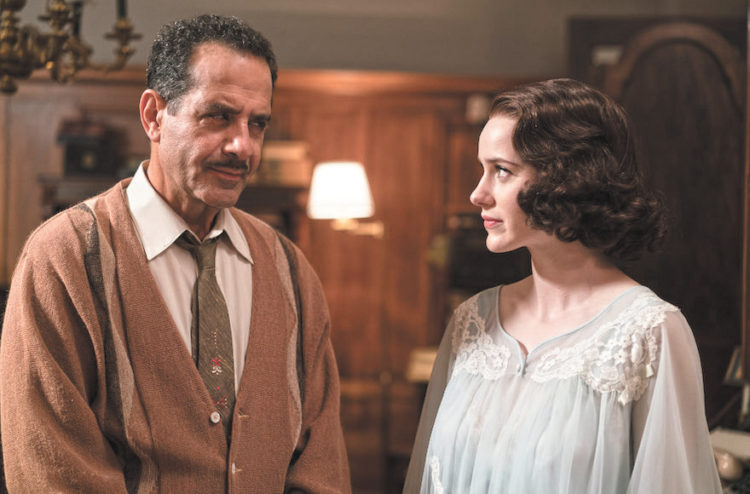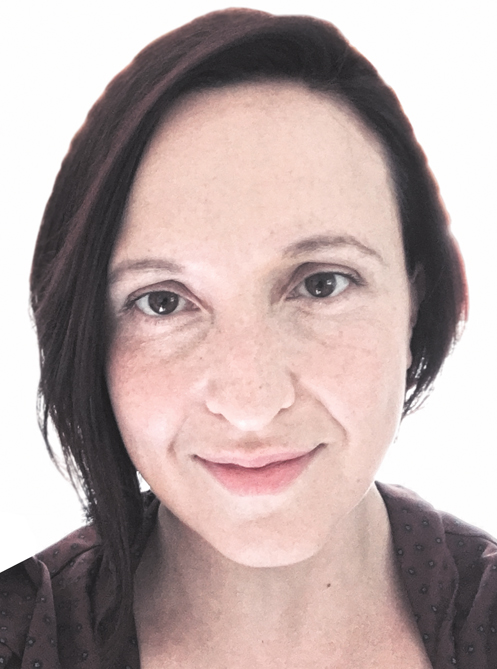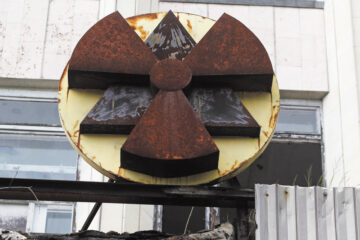Acting Jewish

A Bisel Kisel with Masha Kisel, The Dayton Jewish Observer
As we begin a new decade, I’m seeing many “best of arts and culture” lists pop up on my social media feed. Paradoxically, in the last 10 years we have witnessed a rise in antisemitism along with a renaissance of nuanced portrayals of Jews on television.
Shows like Crazy Ex-Girlfriend, Broad City, Difficult People, Transparent, Big Mouth, and The Marvelous Mrs. Maisel offer viewers new perspectives on the nebulous “Jewish identity” in 21st-century America.
That many of the leading roles are played by non-Jewish actors, however, makes me wonder what it meant to “act Jewish” in the 2010s, and what might it look like in the 2020s.
In his article Jew-Face: Non-Jews Playing Jews on the American Stage, Prof. Ted Merwin writes of gentile comics playing to the most offensive Jewish stereotypes in 1920s American theatre:
“Most were non-Jews who dressed in poor-fitting clothes, plug hats, long beards and exaggerated putty noses. They spoke with mock Yiddish accents and gestured wildly with their hands as they heaped scorn and ridicule upon the Eastern European Jewish immigrants for their supposed dishonesty, penny pinching, inability to speak English, cupidity, stupidity and overall bad manners.”
Merwin notes that today, “lines between Jews and non-Jews (are) becoming increasingly blurred.”
The entertainment industry no longer expects that Jews should look or act a particular way. But is that really true?
Last year, the Forward published a list of “All the Celebrities you Really Thought Were Jewish-But Aren’t.” Included were Rachel Brosnahan of The Marvelous Mrs. Maisel, and many of the characters on Transparent, including Kathryn Hahn, who played Rabbi Raquel.
If, as Merwin insists, we can no longer tell who is Jewish just by looking or listening, then why are some gentile actors mistaken for Jews?

The Marvelous Mrs. Maisel, inspired in part by Joan Rivers’ rise to stardom, has been praised for avoiding stereotypes in its depiction of a seamlessly acculturated Jewish family in the 1950s.
The eponymous Miriam Maisel, played by Brosnahan unlike many Jewish American Princesses who have come before, doesn’t whine or yell to get her way.
She works hard for her success, stoically enduring marital disappointment and the indignities of show business. Brosnahan plays Miriam as a charismatic fast talker, often an unstoppable stream of cringy-over-sharing onstage and off (she nervously prattles on about her father’s penis after she unexpectedly glimpses him in the audience).
Having watched Brosnahan in other roles, I see the wild kineticism of her gestures and the chattiness as new qualities, specifically cultivated to play Miriam.
Of course, we could chalk this up to her being a comedian. Tony Shaloub’s performance as Miriam’s father, Abe Weissman, who plays an absent-minded math professor, barely capable of survival outside his ivory tower, struck me as a caricatured portrayal of a “Jewish intellectual.” But then again, maybe it’s a pastiche of a math professor.
Transparent, dubbed the “most Jewish show in the history of television” by Slate and Esquire, tells the story of a complicated Jewish family in which Morty Pferfferman (Jeffrey Tambor), divorced father of three in his 60s, begins a gender transition process into Maura.
As we get to know the Pfeffermans, we come to understand the double meaning of the show’s title. It’s not only about a “trans parent,” but alludes to personal and intergenerational secrets coming to light, including events dating back to 1930s Germany.
Many friends have remarked that the Pfeffermans are too self-absorbed. But I find their passionate quests for meaning deeply relatable. Ali, Sarah and Joshie (all played by non-Jewish actors) seek fulfillment in the sacred and the profane; in meaningful religious practice and in sexual experimentation. Transparent creator Jill Solloway’s thoughtful treatment of human sexuality would do both Sigmund Freud and Dr. Ruth proud.
As with The Marvelous Mrs. Maisel, it’s difficult to separate the writing from the acting, but what strikes me as “Jewish” about these roles is not the religious practices of the actors playing them but rather the naked emotional intensity. In each storyline, the character reaches a climax of vulnerability, their inner world turned inside out for everyone to see.
This moment of crisis and potential healing is told through the body: Transparent relies on close-up of facial expressions more than any other narrative tool.
As a Jew who thinks and writes a lot about being Jewish, I wonder: am I seeing what’s really there, or am I simply projecting my own assumptions born in part from earlier iterations of fictional Jewishness in books, film, and television?
I struggle with internalized essentialization; self-conscious of seeming neurotic, domineering, shrill, cerebral. I don’t yet have a definitive answer, but I can say with confidence that these actors are not reproducing two-dimensional nebbishes, misers, yiddishe mamas, and Jewish American Princesses.
On the contrary, “acting Jewish” on the small screen signifies delving deep into the gore and glory of the human experience. Whether played by Jews or gentiles, it is my hope that these complex characters will resonate with audiences, that art will be a subtle weapon against antisemitic dehumanization in the 2020s.
Dr. Masha Kisel is a lecturer in English at the University of Dayton.
To read the complete February 2020 Dayton Jewish Observer, click here.




